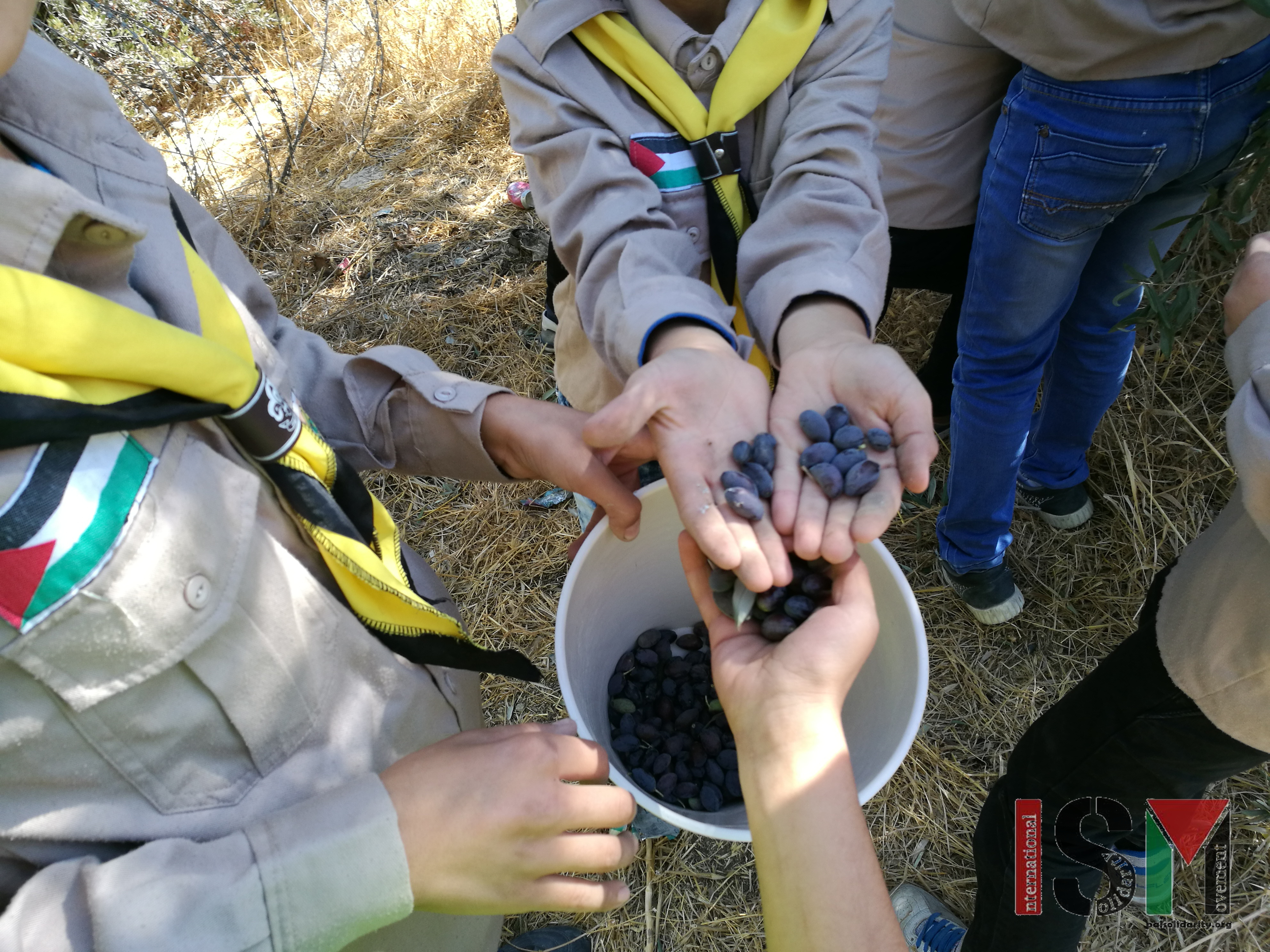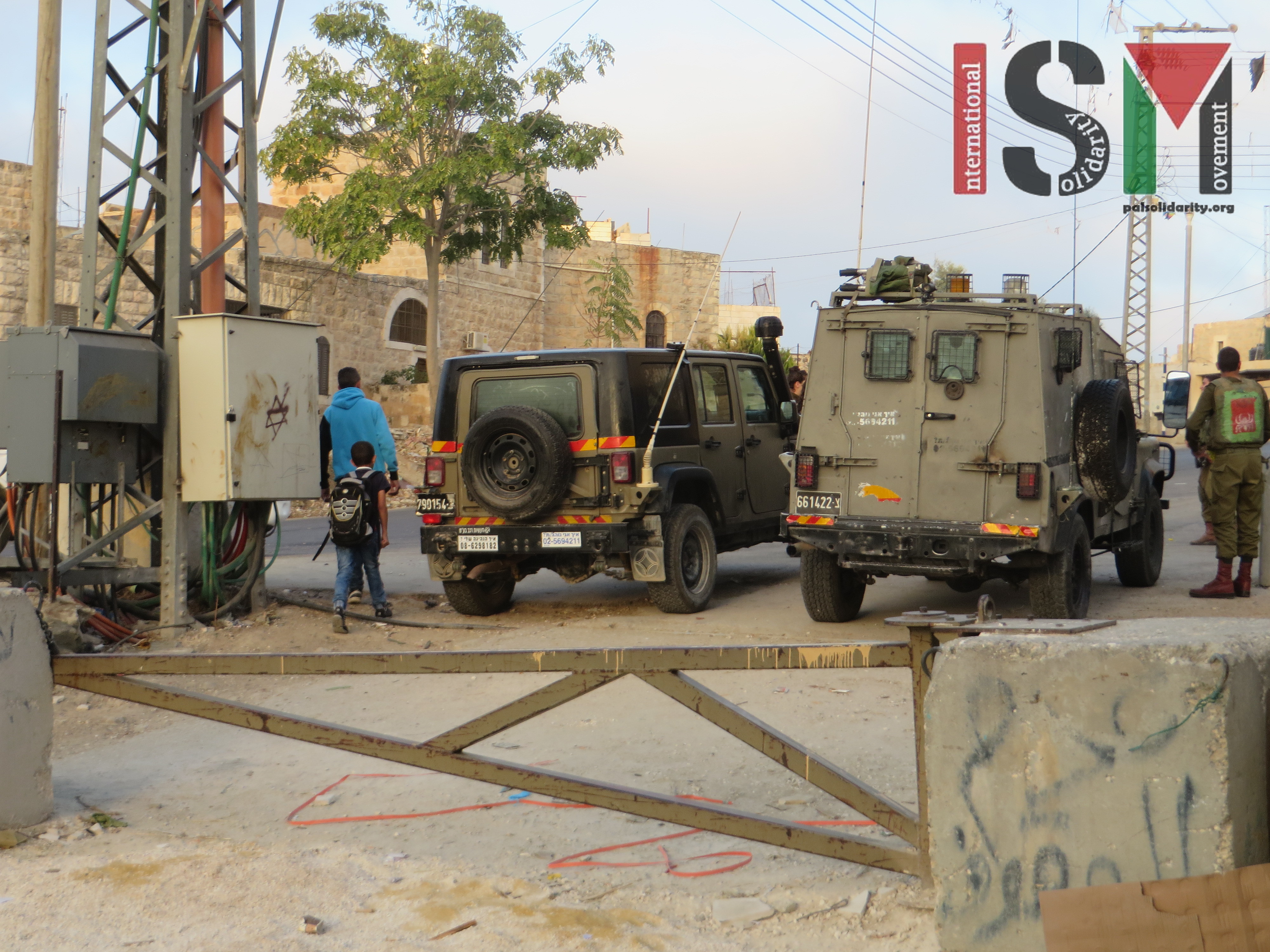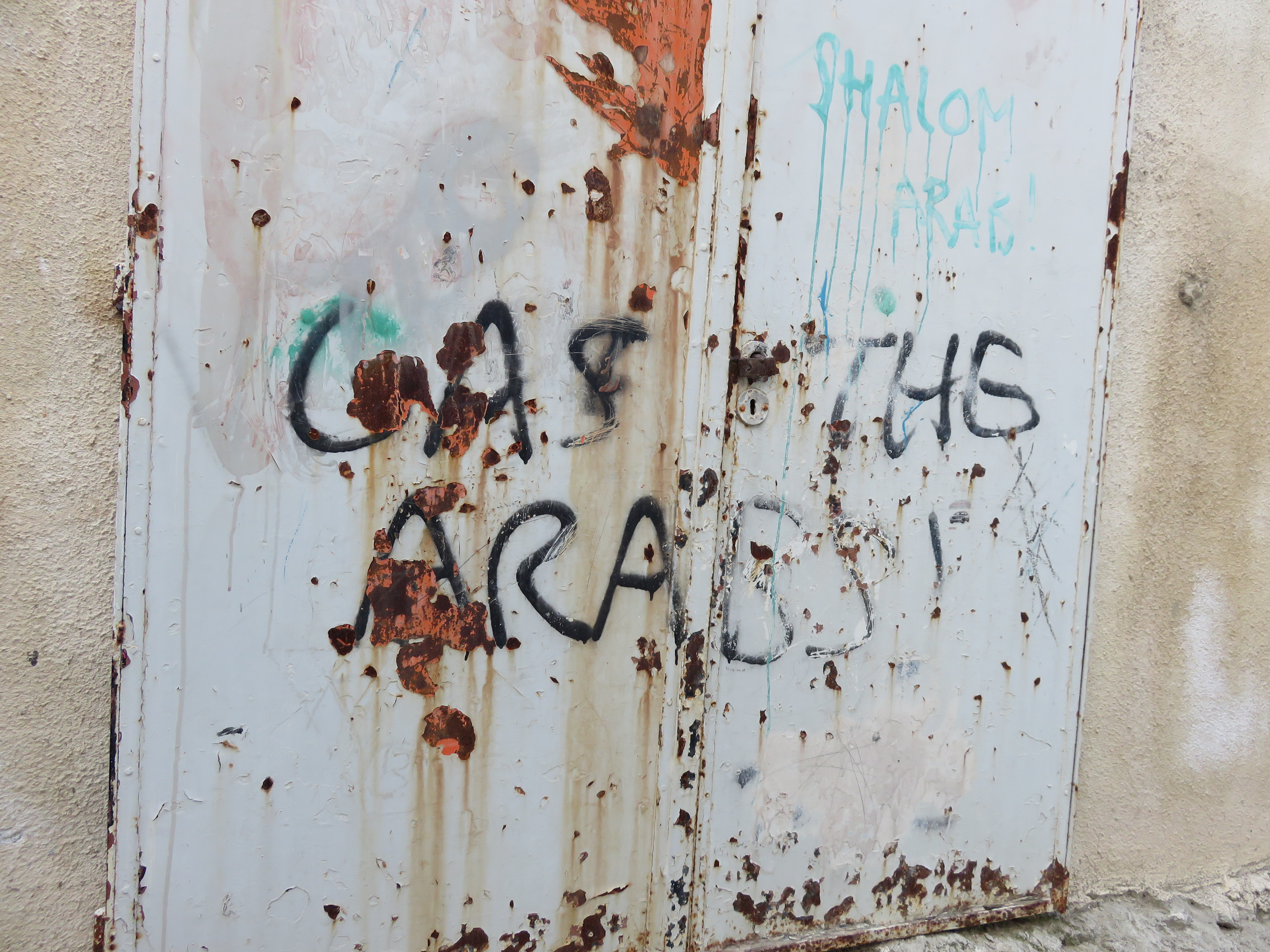Category: Hebron
-
Remembering Hummam, Remembering Islam: Reflections on genocide, one year on.
27th October 2016 | International Solidarity Movement, al-Khalil team | Hebron, occupied Palestine Acts of injustice done between the setting and the rising sun In history lie like bones, each one. – W. H. Auden, from “The Ascent of F6″ Today marks one year since the murder of a young man outside the ISM…
-

Settler attacks school-children and orders soldier to assist her
24th October 2016 | International Solidarity Movement, al-Khalil team | Hebron, occupied Palestine On Monday morning, infamous Israeli settler Anat Cohen attacked a group of school-children harvesting olives near their school in occupied al-Khalil (Hebron). She then ordered the soldier to not only evict the students and teachers from the area, but assist in her…
-

Occupation through the eyes of a child: the way to school
24th October 2016 | International Solidarity Movement, al-Khalil team | Hebron, occupied Palestine Imagine being an eight-year old boy, walking to school, and as you come close, close to the roadblock you have to pass every day, army jeeps are everywhere, blocking the roadblock and the gate. You have to squeeze past the jeeps on…

